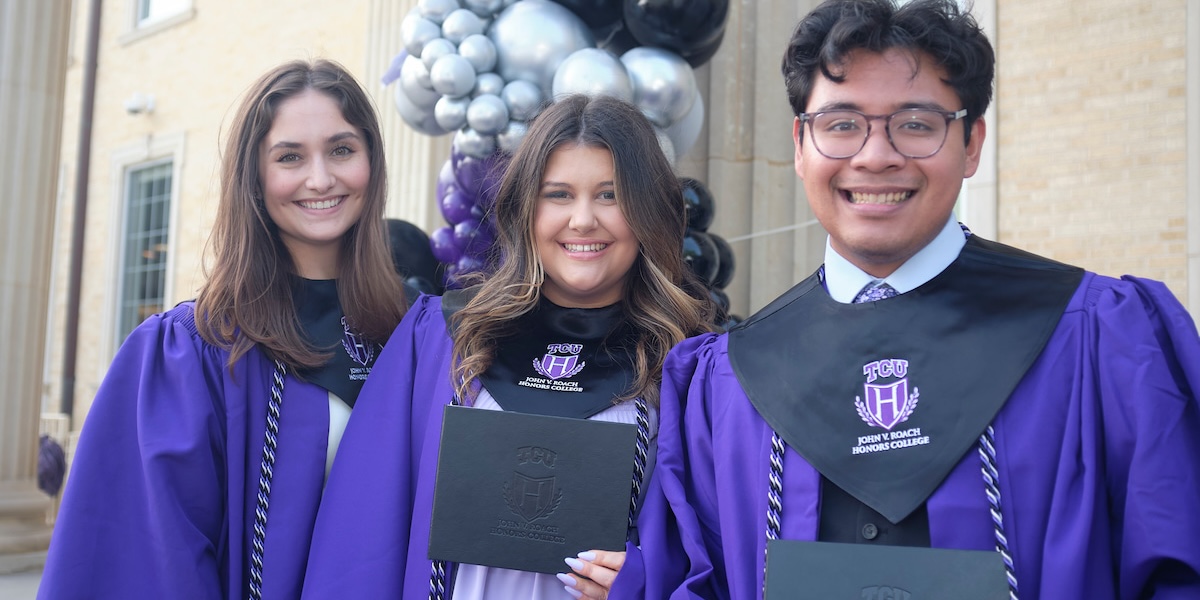The John V. Roach Honors College celebrates the Class of 2024 — the largest in Horned Frog history. The Class of 2024 is extra special, full of history makers and record breakers who persevered through the height of COVID-19 during their first year and participated in TCU’s 150th celebration during their final year.
We proudly celebrate the accomplishments of students like Marina Magnant, Sabrina Rizzo and Mark Rose, three students responsible for the creation of the Honors Mentor Program. Here, they share their Honors College experiences and post-graduate endeavors.
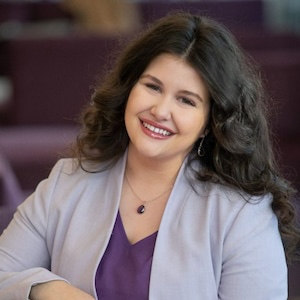
Marina Magnant
Hometown: Porto, Portugal
Degree: Bachelor of Business Administration in marketing and supply chain with a global business minor
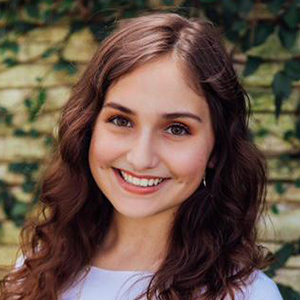
Sabrina Rizzo
Hometown: Houston, Texas
Degree: Bachelor of Business Administration in management with minors in finance and psychology
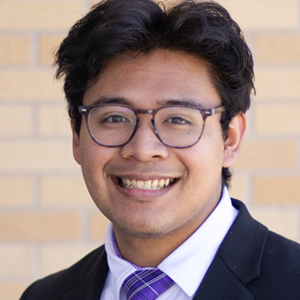
Mark Rose
Hometown: Oklahoma City, Okla.
Degree: Bachelor of Science in political science with minors in criminal justice and English
Why Honors?
Magnant: One of the most compelling aspects of the Honors College was the emphasis on a well-rounded education that not only focused on academic achievements but also fostered personal growth. The small class sizes, passionate professors and close-knit community environment made it clear that students are valued as individuals, not just as numbers.
Moreover, the variety of Honors courses available offered me the freedom to explore diverse subjects and engage in intellectually stimulating discussions that extended beyond the traditional classroom setting in classes like “Mindfulness, College Life and Identity,” “International Politics,” and “Faith and Social Movements.”
The opportunities for undergraduate research and study abroad programs also played a significant role in my decision to join the Honors College. These experiences have equipped me with a unique set of skills and a broader perspective, preparing me for a range of future career paths.
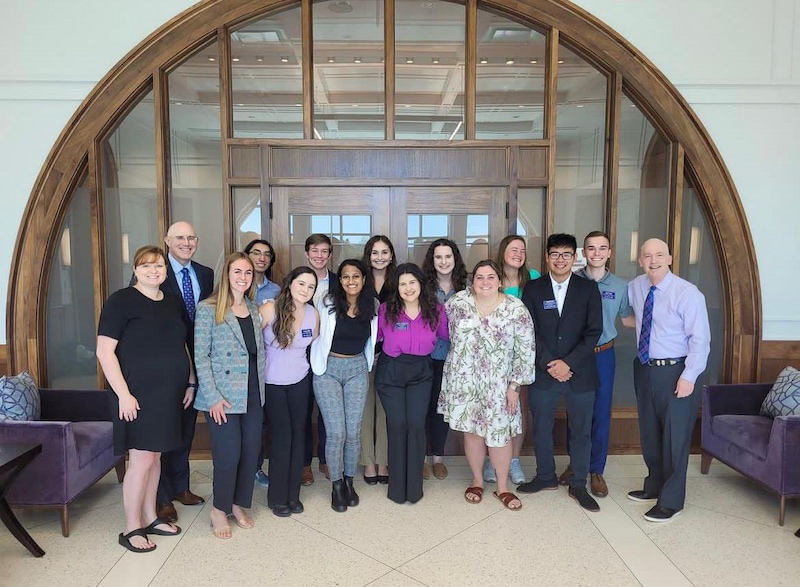
Rizzo: I was drawn to Honors due to the tight-knit, academically challenging, supportive community it offered within TCU. From the moment I stepped into my first Honors event, I knew that I was surrounded by like-minded individuals who valued the same things I did: community, learning, excellence, friendship and embracing different perspectives.
Everyone I met in the Honors community was unbelievably welcoming and supportive of my goals and aspirations and made me feel at home immediately. Sometimes it would feel overwhelming knowing that I was just one student of thousands at TCU, but within Honors, it always felt like I was cherished for exactly who I was and didn't get lost in the crowd.
I also highly valued the academic experiences that Honors offered, as the classes were specifically designed to foster interdisciplinary and intercultural educational experiences that I wouldn’t have had otherwise.
Rose: I’ve had multiple people ask, “why Honors,” and I give them three main reasons they should apply.
First, the Honors classes are exceptional and are always by far my favorite classes to attend. The lower division cultural visions classes offered unique ways to learn, from listening to Willie Nelson’s “Red Headed Stranger” to roleplaying as parents advocating against high school voucher systems. This theme multiplied in the upper-division colloquia classes, which were all incredibly diverse in projects, activities, experiences and assignments that were focused on truly learning through more than textbook memorization.
The second reason is the select experiences that are normally open only to Honors students; Honors abroad trips, banquets, keynote speakers, lawn parties and even living in Milton Daniel Hall all enrich life at TCU.
The third reason is the community of the Honors College. The smaller nature of the classes, along with ample time to connect, helps maintain a close-knit web of students throughout campus that bond over their love for Honors.
What is your most memorable Honors experience?
Magnant: As president of the Honors Cabinet for two and a half years, one of my most memorable experiences is representing the Honors College in various prestigious capacities. I had the once-in-a-lifetime opportunity to ring the New York Stock Exchange bell as part of TCU’s 150th celebration, standing alongside figures like Chancellor Victor J. Boschini, Jr., President Daniel W. Pullin and the platform party.
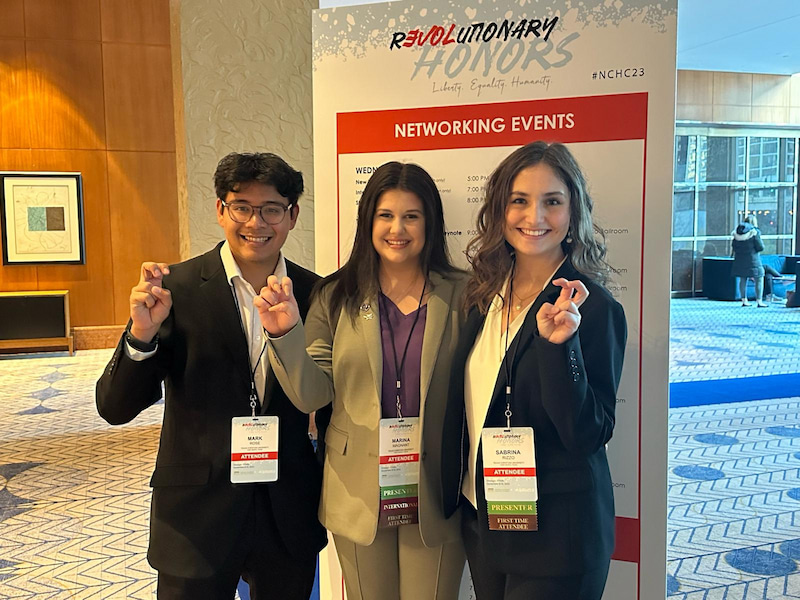
Rizzo: Being a member of the Honors Cabinet gave me the most memorable opportunities and experiences at TCU. The organization has single-handedly changed the trajectory of my experience here. There were so many memorable moments to come out of my time with this organization. I was able to build a mentorship program from the ground up with my best friends, create a college showcase that brought all of the deans, chancellor, provost and president together to inspire first-year students, attend special Honors events (including the Fogelson Forum with Amal Clooney, plays at Bass Hall and a trip to Chicago), interact with and get to know the stellar Honors faculty and staff, make lifelong friends in my Honors Cabinet peers and truly impact the student experience for the better through our programming.
The Honors Cabinet gave me so much more than just a membership in an organization — it gave me a family within Honors that always had my back and pushed me to excel at the highest level. Each person and experience with this organization has left a lasting impact on my memories of TCU and my life as a whole.
Rose: The first that comes to mind is also the most recent. I participated in the “Giving and Philanthropy” colloquia class with Professor Sara Vartabedian during my last semester of TCU, which culminated in a final, several hours long debate and ceremony the following Friday to distribute the class’s endowed gift among the selected nonprofit recipients.
One of the selected nonprofit organizations was Families to Freedom, a local organization that focuses on providing swift, discreet and safe transportation to victims of domestic violence and their children. My group members and I were assigned to conduct site visits and draft a 13-page brief covering their finances, mission, vision and need for a gift. During the debate, I advocated strongly on their behalf alongside my group members, and we were able to allocate a significant portion of the gift to their cause.
Tell us about your role with the Honors Mentoring Program.
Magnant: As the program director, I had a deeply rewarding role in pioneering and leading the Honors Mentoring Program for first-year Honors students, managing to achieve both high retention and high engagement of over 250 participants.
I initially pitched the idea for a mentorship program that would connect first-year students and upperclassmen due to my experience taking classes online in Portugal because of COVID-19.
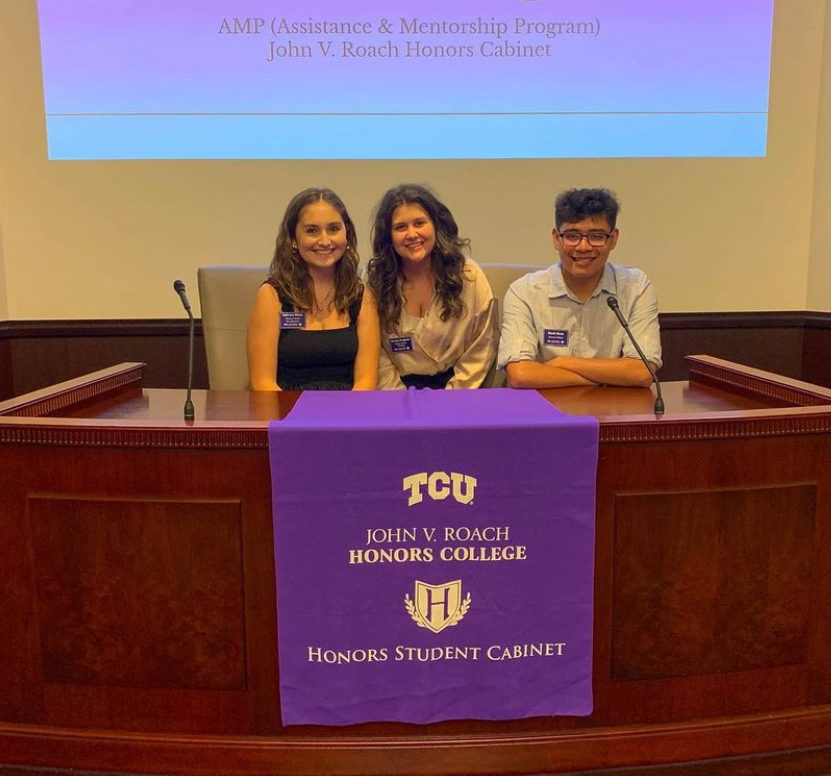
My involvement began with conceptualizing and implementing a comprehensive two-year research project that formed the backbone of the program’s approval and creation. This involved curating multiple data streams, producing over 30 pages of detailed research and conducting a survey that garnered responses from 239 individuals. These efforts led to a significant increase in the program’s capacity and participation — 117% within just one year of its launch.
Rizzo: I was the mentor chair for the Honors Mentorship Program. This role was one of the three main leadership positions for the program and meant that I was responsible for organizing, coordinating and corresponding with all the upperclassmen mentors in the program. Any day-to-day communications, questions and conflict resolution on behalf of the mentors went through me.
The mentors are the foundation of our program, so we created this role to ensure that their needs were being met just as well as the mentees. It was really neat to get to meet so many talented and dedicated mentors through this role who were just as committed to our program mission as we were.
Rose: My first unofficial role was as assistant developer of the mentorship program. Marina Magnant spearheaded the initial strategic planning and conception of the program, with Sabrina Rizzo and I lending equal levels of advice, assistance and opinions while managing the various documents and aspects of development.
When the program was finally established, I was designated as the mentee chair, meaning I was the primary contact for first-year mentees and handled responsibilities such as sending them updates, checking in and sharing feedback forms and more.
What is your favorite Honors class you took and why?
Magnant: My favorite Honors class was International Politics with Professor Carrie Liu Currier, which I took during my freshman year. As an international student, I was fully online at the time from Portugal due to the COVID-19 pandemic.
Professor Currier was notably interactive in her teaching approach, constantly encouraging us to engage in critical thinking and to develop a comprehensive understanding of world affairs. This aspect of the class was particularly impactful for me as an international student, playing a crucial role in shaping my development and influencing my perspective on global issues today.
Rizzo: One of the most interesting Honors classes I took was “The World in the News” with Professor Juan Carlos Sola-Corbacho. This was the first class I took for Honors colloquium, and it embodied the intercultural and interdisciplinary education that Honors strives to provide its students.
The class allowed us to be explorers and researchers of a different topic and area of the world every week to expand our horizons beyond the classroom. It was the first class I had in college that challenged our perspectives of the world we knew. The discussions we had helped me learn how to articulate nuanced ideas, consider multiple different facets of complex issues and integrate different knowledge bases I had.
Professor Sola was also a wonderful professor who always aimed to be a discussion facilitator, rather than a discussion leader, to allow us space to grow into our own ideas and communicate with our classmates through our own perspectives.
Rose: Sports and Society takes the cake for me. Dean Ron Pitcock really does embody his catchphrase “fired up,” as he showed up to each class with a Topo Chico in hand and several notes on what to ask each person or how to guide the discussion of the day.
The learning materials came in multiple formats, from documentaries and miniseries to news articles on the latest developments in the world of sports. Whether we were avid consumers or just casual purveyors, Dr. Pitcock managed to connect each of us to sports and show how several complex concepts were woven into the fabric of sports.
Sexism, racism, gender inequalities, domestic violence, chronic illness, toxic masculinity, financial inequality and more are intertwined in the sports we love today, just as they can be with any other social institution.
The class was entertaining, educational, full of bonding moments, led by a passionate instructor, and one that I actively looked forward to every single week — all qualities that embody the Honors College.
What are your plans after graduation?
Magnant: I will be moving to New York City to work with Goldman Sachs in asset management. I actually decided to move to New York because I got the chance to visit it with the Honors College.
Rizzo: After graduation, I will return to my hometown of Houston, Texas, to work as a philanthropic liaison for Pappas Restaurants.
Rose: I will be attending the Pepperdine Caruso School of Law in fall 2024 with the goal of specializing in criminal law, constitutional law, human/civil right law and trial advocacy.
